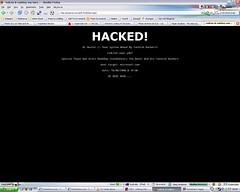Webnewwire.com report submitted on November 11, 2009
Has your girlfriend blocked you and you cant see her on-line? Wondering how to keep your email account protected? Or want to hide files from your annoying siblings? MTV’s got Ankit Fadia – the coolest Ethical Hacker in the world to give you everything from tips, tricks to cheat codes that will help make your life on the world wide web a whole lot simpler. Learn cool stuff that you can with your computers, Internet, mobile and other technology in your life!
This is India’s first tech show which does not review tech gadgets, websites or software instead it gives viewers a low down (or download!) on cool stuff that they can do with technology that will make their every day life cooler, simpler and stylish!
I am hosting “MTV What the Hack!” show with MTV VJ Jose, informed Ankit Fadia who was in city on a private visit. Watch it on MTV India every Saturday @ 8:20 PM. Repeat Telecasts every day, he appealed to the people
The show is a guy show with lots of typical MTV style humour. VJ Jose and Ankit Fadia shoot the episodes without a script and just naturally jam in front of camera and talk about technology. The show has got a very good response so far as it is being different from other shows. Most of the tech shows in India are review based shows where gadgets, software and websites are reviewed. This is the India’s first reach show that actually teaches viewers something. The show is on as part of MTV’s move to beyond music and beyond television. Since October 17 this year dropped ‘Music Television’ baseline which has been there in India for the past 13 years. Music contributes about 40 per cent of its programming and soon will go down to 25 per cent. This is happening as part of repositioning exercise MTV kicked off two years back. MTV is born of music, inspired by music, driven by music –but not limited by music. IT is now about new ideas, new formats, new ways of reaching people in new places they choose to live in.
Addressing the press conference Ankit Fadia spoke on various issues concerning Cyber Security in India. Speaking about Cyber security issues India is facing today he said Pakistani cyber criminals are able to deface 50 to 60 Indian websites a day, but, in retaliation only 10 to 15 Pakistani websites are defaced. And this has been going on since 2001. Nodoubt, India is IT capital of the world, but, as far as security is concerned India is far lagging behind, informed Ankit.
Speaking further he added that Terrorists are using most advanced technologies for communication. Which include mainly VOIP(Voice Over Internet Protocol) Chats, hiding messages inside photographs, draft emails, encrypted pen drives etc are some of the techniques to communicate with each other, he informed.
Cyber laws in India are quite good, b ut the problem is that the police who enforce those laws are ill equipped and are not trained properly. And he challenged media to visit the nearest police station and lodge a cyber crime complaint. And you will shocked that 9 out of 10 times, the officials attending you won’t follow what you are saying, said Ankit.
The biggest problem that the police worldwide face while solving cyber crime is the fact that the Internet has no boundaries, however, while investigating a cyber crime case a number of geographical, political, social and diplomatic boundaries come into the picture.
The next big security threat could be from Social Networking, Ankit declared. Everybody in India is on the social networking bandwagon. Even Karan Johar, Priyanka Chopra, Aishwarya Rai, Shashi Tharoor, Barack Obama and many other celebrities are updating Twitter daily. The latest viruses, worms, spyware and malware spread through social networking websites like Twitter, Facebook, Orkut and Myspace.
You will receive a private message from one of your friend (who is already infected) containing a link to a Youtube video. Halfway through the video, it will prompt you to download some Video Plugin or Code. Since the message came from your friend, most people tend to trust it and get infected!, said Ankit.
There are many financial scams and frauds happening on social networking websites. Get rich quick schemes, Earn Money Online Scams and various money laundering attacks now come to you through a Twitter update or a Facebook wall post!. Since Social Networking websites are all about your friends, many people are susceptible to the attack, Ankit said and added that Antivirus companies need to gear up to have a social networking aspect to them. People need to be made aware of the threats of social networking!
Another next big security threat could be People Hacking, he informed. People Hacking is all about sweet talking people to get things done. Especially things that they would normally don’t do or should not do!. People Hacking happens around us all the time. In the office, with your friends, at the check in counters at the airport or on the phone with the call centre. To carry out People Hacking you need to know what to say to whom and more importantly how to say it. Inducing fear, guilt, sympathy or just overpowering the victim with your words can lead to People Hacking, informed Ankit Fadia.
When asked about advise like Dos and Don’ts for average internet user he listed out the following.
– Use an Antivirus. More importantly, update it every week.
– Use an Anti Spyware. Update it every week.
– Use a Firewall. They are not as technical as they sound. A very good firewall that I recommend is Zone Alarm. Just do a Google search to download it.
– Use a strong password for all your accounts—a combination of alphabets, numbers and special characters. Use both lowercase and uppercase.
– Use Windows Update every fortnight to patch Windows.
– Use a Key Scrambler—a software the scrambles your keys in such a way that key loggers & other spying tools cant record what you type on your computer.
– Use a password on your Wi Fi network.
Tags: Aishwarya Rai, Ankit Fadia, Barack Obama, cyber security, facebook, Google, MySpace, pakistan, Priyanka Chopra, Security, social engineering, Social Networking, Twitter, World Wide Web, YouTube








![Reblog this post [with Zemanta]](https://img.zemanta.com/reblog_e.png?x-id=f6585d2d-0cfc-4330-b355-8e325df5e77e)

![Reblog this post [with Zemanta]](https://img.zemanta.com/reblog_e.png?x-id=39604df3-3a2e-48fe-b83b-1cc765a3db69)

![Reblog this post [with Zemanta]](https://img.zemanta.com/reblog_e.png?x-id=f8de8c13-0fd8-4ad8-a8fb-d73a5f40b776)

![Reblog this post [with Zemanta]](https://img.zemanta.com/reblog_e.png?x-id=71e08c80-6679-4149-9792-a09ae18f1e10)

![Reblog this post [with Zemanta]](https://img.zemanta.com/reblog_e.png?x-id=5cd3d1f1-ee98-4c7c-90c8-083e60e311b6)



![Reblog this post [with Zemanta]](https://img.zemanta.com/reblog_e.png?x-id=e39877b8-3658-48d6-a82b-d789a6584701)



